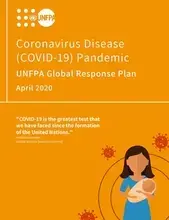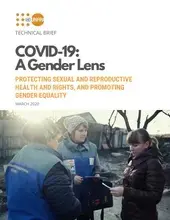6 September 2019, Vientiane Capital, Lao PDR – Ministry of Health with support from United Nations Population Fund in Lao PDR organised a four-intensive-day workshop to build capacity of health care professionals on the Minimum Initial Service Package (MISP) for reproductive health in emergency situations and how to implement MISP in the early phase of emergency. The workshop was attended by 32 professionals from the health sector and Lao Women’s Union. A mix from central level and the 3 provinces of Savannakhet, Khammoune and Attapeu.
The training covered MISP’s 6 main objectives: 1. Coordination Saves Lives; 2. Prevent sexual violence & respond to the needs of survivors; 3. Prevent the transmission of & reduce morbidity & mortality due to HIV & other STIs; 4. Prevent excess maternal & newborn morbidity & mortality; 5. Prevent unintended pregnancies and Objective 6. Plan for comprehensive SRH services, integrated into primary health care as soon as possible including Safe Abortion Care to the full extent of the law.
Last year’s floods and disaster led to 13 villages downstream in Sanaxay District, Attapeu suffering from flash floods, amongst the most severe humanitarian crisis faced by the country in the past ten years. With climate change frequency or floods may well increase and preparedness is key to effective response and resilience.
The 2019 experience showed clearly the need for sexual reproductive health services and that during disasters, the risk of sexual violence, STIs and HIV transmission are likely to increase. Childbirth did not wait during evacuation and displacement, however, the access to emergency obstetric care and family planning was limited, causing maternal morbidity, mortality and unplanned pregnancies.
“In humanitarian crisis, 75% of the victims are women, girls, and children. Globally, reproductive health problems are a leading cause of women’s death and yet sexual reproductive health is often neglected in humanitarian response. With the right preparation, lives can be saved including the most vulnerable ones” Said Dr. Bounpheng Philavong. Director General, Department of Hygiene and Health Promotion, Ministry of Health.
Sexual and Reproductive Health (SRH) is vital in humanitarian settings, it is a lifesaving intervention. The MISP is a set of medical kits containing reproductive health equipment and supplies; along with a set of activities that must be implemented in a coordinated manner by appropriately trained staff.
“This training for health care professionals will equip them with the knowledge and skills that to appropriately implement MISP preparedness and response to future disasters and prepare them to manage the cases of survivors of sexual violence be they women, men or adolescents.” Said UNFPA’s Representative in Lao PDR, Ms. Mariam A. Khan.
The meeting was facilitated by experienced humanitarian officers from the Philippines. The Philippines is one of the most disaster-prone countries in the world, disasters brought on by typhoons, floods, earthquakes and volcano eruptions displace millions of people each year. The two ASEAN nations also exchanged experiences on how to coordinate better and more effectively with local and international assistance.





